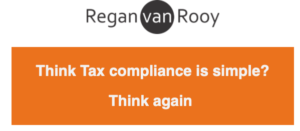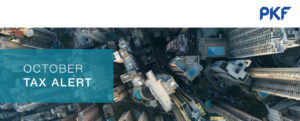Mauritius: Automatic Exchange Of Information In Tax Matters: Mauritius Is One Of The First African Countries To Sign Up
In a nutshell, the aim of the CAA is to create a framework for the systematic and periodic transmission of bulk taxpayer information (including details of dividends, interest, royalties, salaries and other forms of capital and income) by the source country to the country of residence of the taxpayer. The CAA is to be read in conjunction with the Standard for Automatic Exchange of Information in Tax Matters (the “Standard“) which contains the reporting and due diligence standards that underpins the automatic exchange of information, as well as extensive technical guidance on the interpretation of the CAA.
Mauritius was one of the two countries from the African continent to sign the CAA (the other being South Africa). Mauritius is a country that is regularly applauded for being consistently ranked first by various indexes for “Ease of Doing Business in Africa” and in the past decade or so, it has rapidly gained momentum as being THE gateway into Africa. Our leaders patted themselves once more on the back for being at the forefront of such ground-breaking global action.
To my mind, rejoicing in the adherence to the CAA would be naïve and (if I may) somewhat ignorant, about the obligations and implications it entails. Putting aside the unsettling Orwellian reality of this topic and the issues it inevitably raises about one’s right to privacy, there are a number real practical, financial and economic challenges to be overcome:
Mauritius: a robust and efficient international financial centre (or a cautionary tale)
Mauritius has worked hard to establish itself as a transparent, efficient and reliable international financial centre. Robust anti-money laundering rules are in place, we are rated “largely compliant” by the Organisation for Economic Co-operation and Development (” OECD”), and our financial services market is well regulated and stable. But there is a just balance to be struck between transparency and protecting our clients’ rights.
Automatically equating banking secrecy with anti-money laundering and tax evasion is a dangerous generalisation. We need to be careful that our zeal to be seen as being in line with the first world does not drive our clients away. Just look at Switzerland.
A new and improved version of the United States Foreign Account Tax Compliance Act (“FATCA”) (or the unfettered access to everything and anything)
I still remember the days when FATCA was first heard of. Most people I came across commented on what an abominable and incomprehensible piece of legislation it was. Many thought it would never come into fruition. Few imagined this globalisation of “the spirit” of FATCA only a handful of years later. The CAA purports to draw on the intergovernmental approach adopted under FATCA and provides a framework for the provision of certain types of information by relevant financial institutions. However, the CAA and accompanying Standard is broader in scope than FATCA and has fewer exemptions.
It is strangely ironic that the OECD has the compelling headline that the aim of this initiative is to tax the superrich who hide their money offshore and yet, the CAA does not contain the de minimis financial thresholds for individuals which exist under FATCA. Similarly purely local financial institutions are exempt under FATCA by reason of their client base. This is not the case under the CAA. The expression “fishing expedition” comes to mind.
Protecting taxpayers’ confidentiality (or surrendering to the control system)
One of the crucial points highlighted in the CAA, Standard and all complementary literature published by the OECD is that protecting taxpayers’ confidentiality is crucial in the implementation of this agreement. Robust and fail proof IT and administrative systems need to be built in order to collect and transmit information safely. The Standard contains guidelines on proposed transmission methods and encryption standards but it is clear that there is no single solution (or perhaps, no solution at all!).
But let’s face it. We live in a digital world where even the most secure systems appear to be hacked into effortlessly. The latest round of cyberattacks on Sony is but one example. The second related issue is the costs involved in putting such a system in place.
Does Mauritius have the resources (financial and human) to do it? IT systems are still in the process of being built in respect of FATCA and the potential obligations under the CAA will be even wider and more cumbersome. And who will bear the ultimate cost? The taxpayer of course!
Proud to be part of the Early Adopters Group (or biting off more than you can chew)
Mauritius forms part of the so-called “Early Adopters Group”, being a group of nations which have committed to implement the CAA by September 2017. In practice this means that financial institutions in the relevant countries will need to have their systems fully compliant with the legislation by 1 January 2016. The group labels this deadline as an “ambitious but realistic timetable”. Ambitious? Absolutely. Realistic? I’m afraid that the jury is still out on this one.
The first step to be taken is for there to be a proper legal basis in the relevant jurisdiction for the CAA and the Standard to be effective. Domestic legislation need to be enacted and the rules and procedures put in place have to be consistent with the Standard (which in itself has no legal effect). Financial institutions (which include banks, but also custodians, depositaries, asset managers amongst others) need time to digest this legislation and implement it. The OECD considers the timetable as realistic because, allegedly, a large portion of the work has already been done with FATCA, but many local institutions in Mauritius have not been affected by FATCA whereas the volumes of customers and clients affected by this legislation will be far greater. For many who have taken great care to avoid taking on US clients, the tremendous expense and burden they face with this new legislation is now an unavoidable reality.
Conclusion
While its objective in itself is laudable (i.e. to catch tax evading crooks), this initiative comes fraught with many challenges and obstacles which should not be underestimated nor overlooked.
The content of this article is intended to provide a general guide to the subject matter. Specialist advice should be sought about your specific circumstances.





